Introduction
As the digital age continues to evolve, I’ve noticed a considerable shift in the online business industry. New technologies are being developed and utilized to further optimize customer experience and interaction. Specifically, I’ve become more fascinated with the use of Artificial Intelligence (AI), particularly in the form of chatbots.
Understanding Chatbots
It’s quite fascinating how chatbots have grown in popularity over the recent years. For those who might not fully understand, a chatbot is an AI-powered software designed to interact with humans in their natural languages. These interactions usually take place on websites, mobile apps or through social messaging platforms. They are defined by rules and often make use of machine learning to effectively mimic human-like responses. Depending on the level of sophistication of the chatbot software, the responses can range from straightforward, like answering frequently asked questions, to more advanced answers that require complicated application processes.
The concept of AI in Business
When I started understanding the real capabilities of AI in business, it was clear to me that we’re just scratching the surface. In today’s digital era, AI has crossed the confines of science fiction and has successfully entered our everyday lives, even in business. This is increasingly evident in the online business sphere where chatbots are becoming a staple for successful companies. Companies are not only improving customer interaction but also finding ways to monetize AI. Imagine transforming your chatbot into a powerful tool for generating revenue – a concept that was unthinkable of until very recently.
In this post, we’ll delve deeper into understanding chatbots and how they can be a potential game-changer for online businesses. We’ll also explore how you can successfully transform and strategize this AI technology towards monetizing it effectively.
Evolution of Chatbots
Today, I’d like to share a fascinating journey of technology that has brought significant transformation to online businesses. We’re talking about chatbots.
Chatbots: Past and Present
Once upon a time, chatbots were simple rule-based assistants, designed around static decision trees. These early contenders relied purely on pre-determined scripts, which, although valuable, limited their capability to have intelligent and engaging interactions. However, advances in machine learning and natural language processing have revolutionized the way chatbots function, and in turn, the capabilities that they offer.
Contemporary chatbots, or as I prefer to call them, conversational AI, have evolved to understand human language better and effectively engage users in a personalized and seemingly ‘human’ way. The AI-driven chatbots that we interact with today are capable of understanding nuances in language, deciphering user intent, and delivering relevant responses. They’re designed not only to communicate but also to learn from those interactions, sprouting an entirely new branch of intelligent customer service and engagement.
Key Milestones in Chatbot Development
Last decade has seen exponential growth and amplification of chatbot technology. The milestone that stands out, for me, is the shift from rule-based systems to AI-powered bots. This evolution allowed chatbots to transition from limited, static interactions to more dynamic, intelligent, and personalized conversations.
Another significant development was the integration of analytical features in chatbot technology. With these capabilities in place, chatbots can now understand user behavior, preferences, and gather key insights. They’ve transformed from being simple chat tools to becoming intelligent engagement platforms contributing towards strategic business decisions.
The evolution of chatbots portrays a promising path towards monetization capabilities of AI, making them a powerful asset in the digital business world. As we decode the chatbot strategy, it is clear that chatbots are pushing the boundaries of how we understand and leverage AI technology. It’s exciting to consider where the transformational journey of chatbots will take us next.
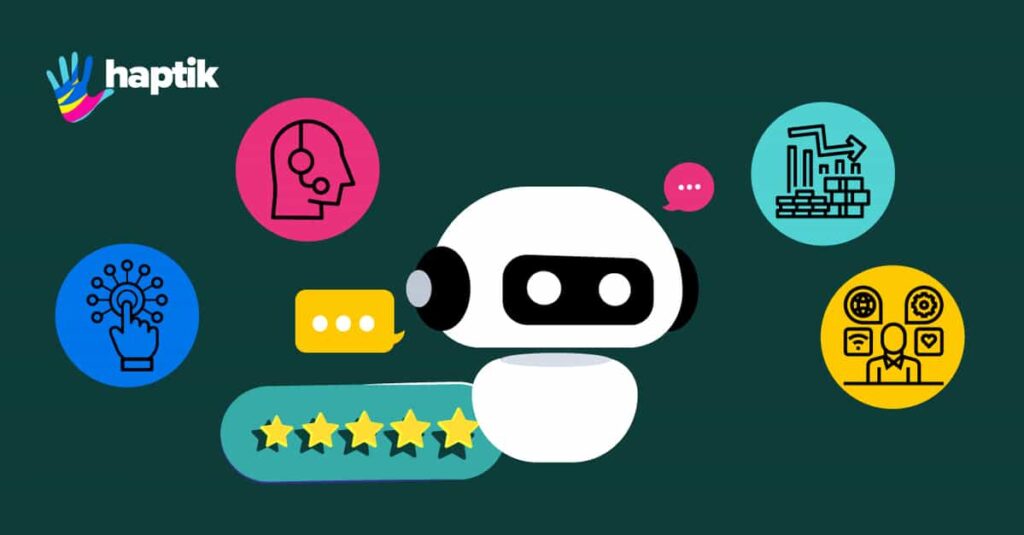
This image is property of 8183098.fs1.hubspotusercontent-na1.net.
The Convergence of AI and Chatbots
As an AI enthusiast, I’ve been absolutely mesmerized by the way artificial intelligence (AI) and chatbots have intertwined to redefine the customer service landscape. Let’s talk about just how significant this evolution is and how AI powers chatbots into becoming the future of online business.
How AI Powers Chatbots?
When I first started exploring chatbots, they were pretty much linear, rule-based systems. Now, fast forward to an era where AI empowers these chatbots, and we see intelligent machines capable of simulating human conversation and automating tasks. But how does AI actually power these chatbots?
AI uses Natural Language Processing (NLP) and machine learning algorithms, which let chatbots understand user inputs, respond intelligently and learn from these interactions. The power of AI extends to understanding the sentiment, context, and intent behind user queries, providing a human-like conversation experience. This intuitive, personalized experience offered by AI-powered chatbots is turning out to be a game-changer for businesses.
Significance of AI in Chatbot Evolution
The significance of AI in the evolution of chatbots is tremendous. AI-enabled chatbots are evolving beyond just customer service and stepping into generating sales and facilitating transactions. Here’s where the transformation towards monetizing AI becomes evident. The advanced algorithms can guide customers through the sales funnel, cross-sell, upsell, and even handle transactions, giving businesses a new source of revenue.
The vast potential of AI-powered chatbots is opening up a path to turn AI from a cost center into a value generator. And with AI continually advancing, the potential for profit increases infinitely. This is the fascinating journey of AI and chatbots, creating a promising future for business owners with their eyes on innovation and monetization.
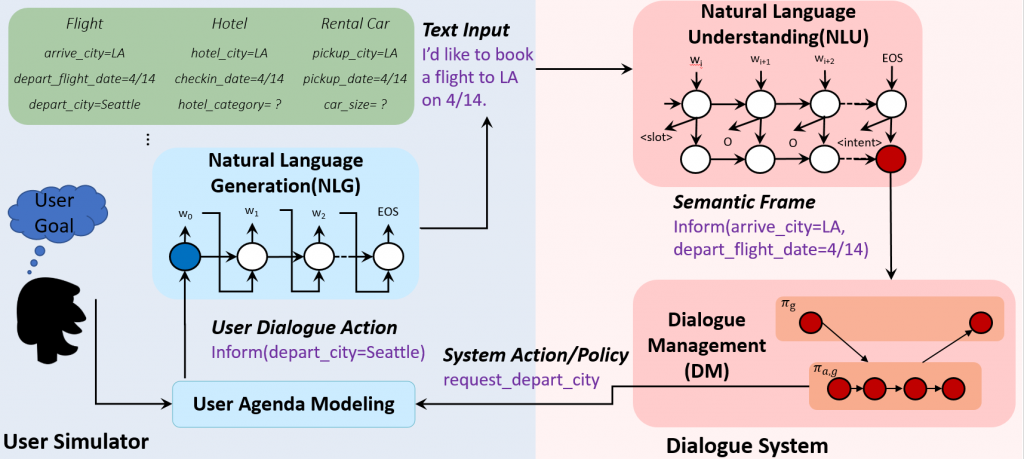
This image is property of miro.medium.com.
Chatbot Strategy Simplified
As an AI enthusiast, I am excited to unravel the intricacies of chatbot strategy, which is steering the transformation towards monetizing artificial intelligence. You might be wondering how these digital assistants are fuelling the growth of online businesses. How can one effectively leverage these chatbots to generate income? It all hinges on a robust chatbot strategy that navigates the journey from chatbots to cash flow.
Fundamentals of Chatbot Strategy
A nifty chatbot strategy doesn’t just materialize out of thin air; it’s rooted in a deep understanding of your business’s goals and the needs of your customers. At core, it’s about developing a fine-tuned mechanism which orchestrates the performance of your bots to fulfill desired objectives. Considering the vast sea of possibilities that AI offers, it’s easy to get lost in fantasy. But don’t let that distract you from your mission! Keep your bots focused on what matters: to enhance user experience and enrich your relationships with your customers by facilitating seamless interactions.
Considerations in Chatbot Strategy Development
Looking into developing a chatbot strategy? Here’s what you need to bear in mind. First and foremost, your chatbot must encompass your brand’s personality – it’s an extension of your business. Next up, the chatbot should be trained to comprehend user inquiries accurately. The last thing you want is a chatbot that confuses your customers instead of assisting them! Lastly, make sure your bot is easy to use and utterly irresistible. How else will you entice your audience to engage with it?
Let’s remember that chatbots are more than just fancy gizmos; they are revenue generators. Effective chatbot strategies enable these AI-powered assistants to drive engagement, facilitate transactions, and enhance customer experiences, thereby contributing to increased revenue and growth in the online business landscape.
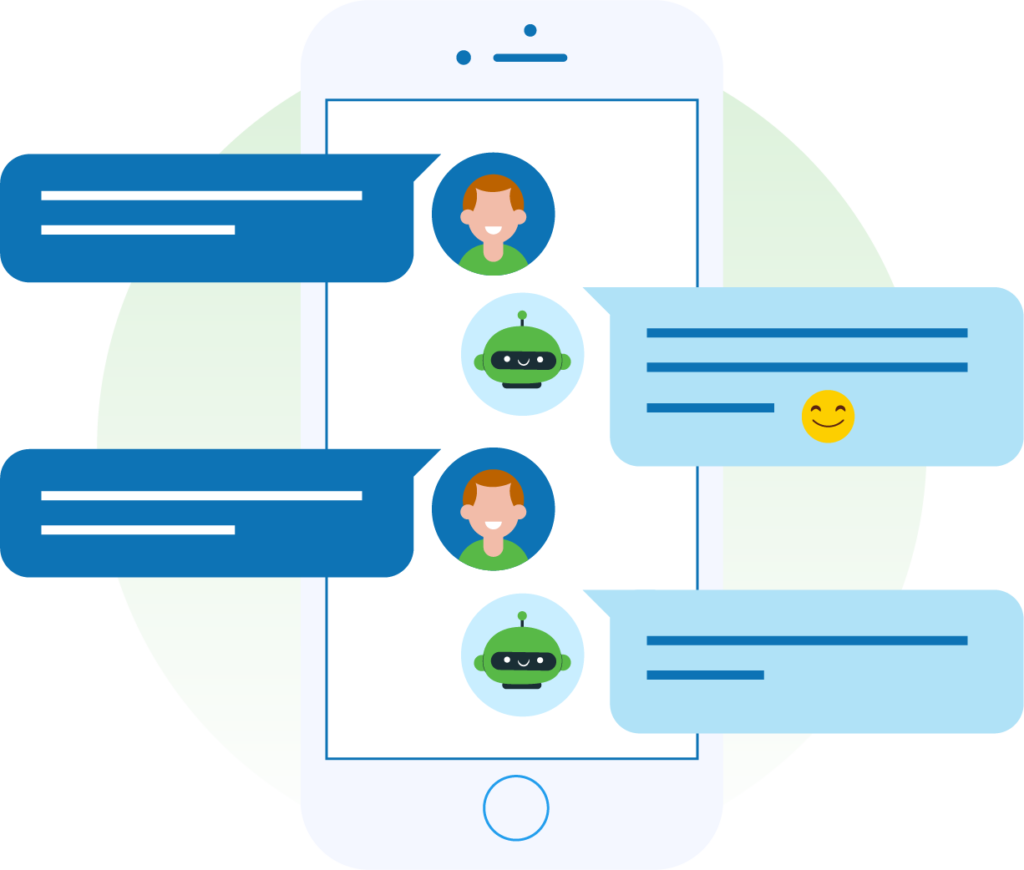
This image is property of www.novelvox.com.
Monetizing AI: The Why and How
In recent times, I have been intrigued by the buzz around the power, potential and profitability of artificial intelligence (AI). As most of you will agree, AI has been commanding the digital world’s attention. Among all things AI, chatbots have become a major player in shaping how online businesses operate and profit. So let me dive deeper into this concept of monetizing AI, more specifically, the strategy behind implementing and monetizing chatbots.
Need for Monetizing AI
Let’s start with why we need to monetize AI. In this digital age, online businesses are constantly exploring ways to efficiently solve customer queries, drive better engagement and increase their revenues. For me, chatbots stand out as a solution because they don’t just engage and assist customers, they analyze interactions to provide quality insights for businesses. Not to mention, they work round the clock with no break! The financial aspect comes into play when these benefits produced by AI chatbots are translated into profitable outcomes. Monetizing AI and chatbots isn’t just about making money, but also about enhancing customer experience, efficiency and getting ahead of competitors.
Approaches to Monetize AI in Chatbots
Now, let’s discuss how we can monetize AI in chatbots. I believe the first approach is through direct monetization, where businesses charge for the advanced services provided by their AI chatbots. But perhaps a more attractive approach is indirect monetization. Here, chatbots drive increased customer engagement and satisfaction, leading to higher conversion rates. The insightful data gathered by chatbots can also be utilized to refine marketing strategies and product offerings. It’s the art of strategically leveraging these resources that carves the pathway towards effectively monetizing AI in chatbots.
Well, the world of AI-powered chatbots is vast and constantly evolving with exciting possibilities. It’s high time businesses start decoding chatbot strategies and explore how to turn it into a cash flow!
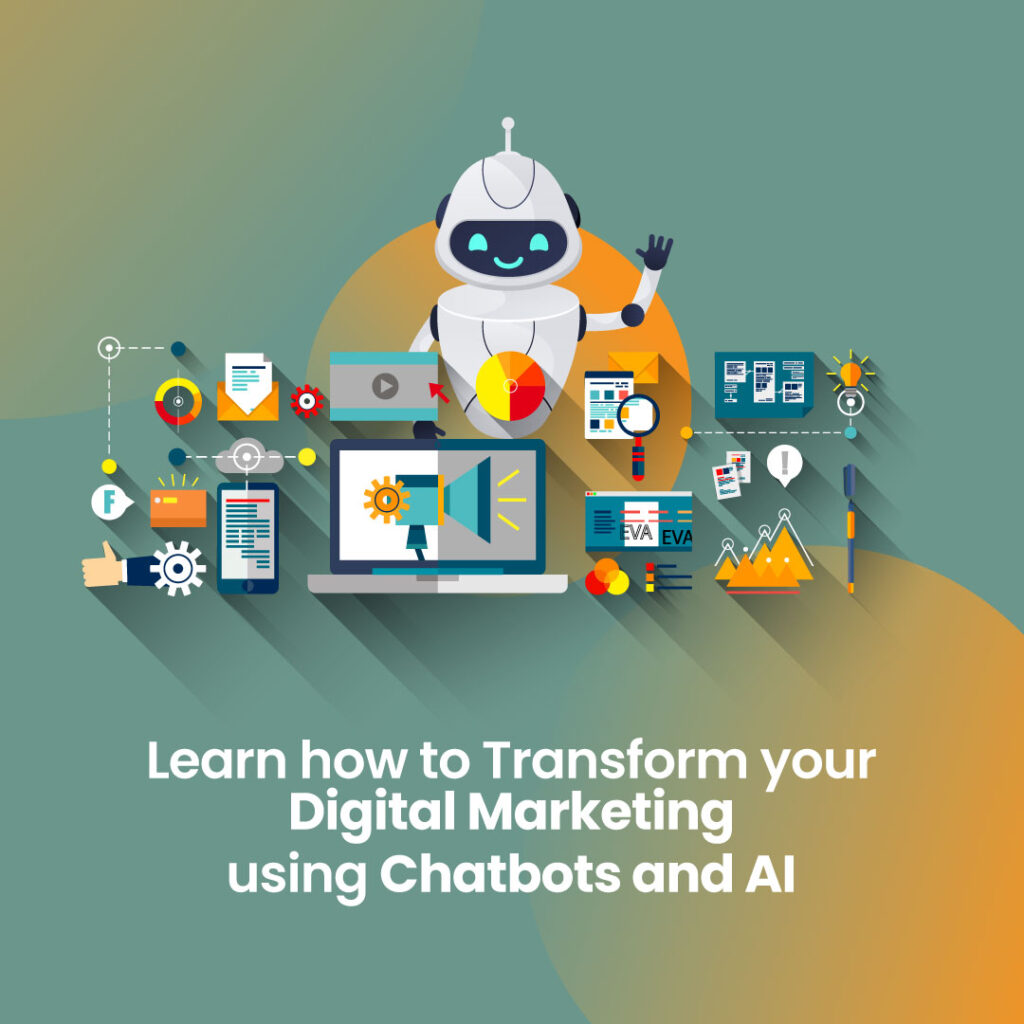
This image is property of onpassive.blog.
Implications of AI Monetization on Business Performance
As a business professional who’s ever ready to confront and adapt to the newest trends, I’ve seen a significant shift happening over the past few years. The integration of Artificial Intelligence (AI) in businesses has been nothing short of revolutionary. More than ever, businesses, big or small, are implementing AI solutions, and chatbots are at the forefront of this shift.
Specifically, I have been focusing on understanding the impact of AI monetization on business performance. I’ve found out that there are two pivotal areas where the effect is most vibrant: revenue growth and customer satisfaction.
AI Monetization and Revenue Growth
It’s no secret that businesses are interested in anything that can boost revenue. From my research, AI-driven chatbots represent a substantial opportunity for monetization. These AI-powered mechanisms can engage with customers 24/7, converting leads into sales even outside business hours; no human can achieve this level of availability. This consistent engagement drives business growth by increasing sales and expanding customer base while significantly reducing overhead costs related to customer service staff.
AI Monetization and Customer Satisfaction
Additionally, companies strive to keep customers satisfied—the happier the customers, the better for the business. With AI chatbots, businesses achieve an unparalleled level of customer service. Since these chatbots use machine learning, they consistently improve their interactions based on each engagement. This feature leads to more accurate, personalized, and efficient customer support.
There you have it. AI monetization carries an abundance of benefits, especially for revenue growth and customer satisfaction. More than being just a trendy tool, chatbots are becoming an indispensable asset in companies’ strategy to improve business performance. So let’s get on board, and embrace the AI revolution.
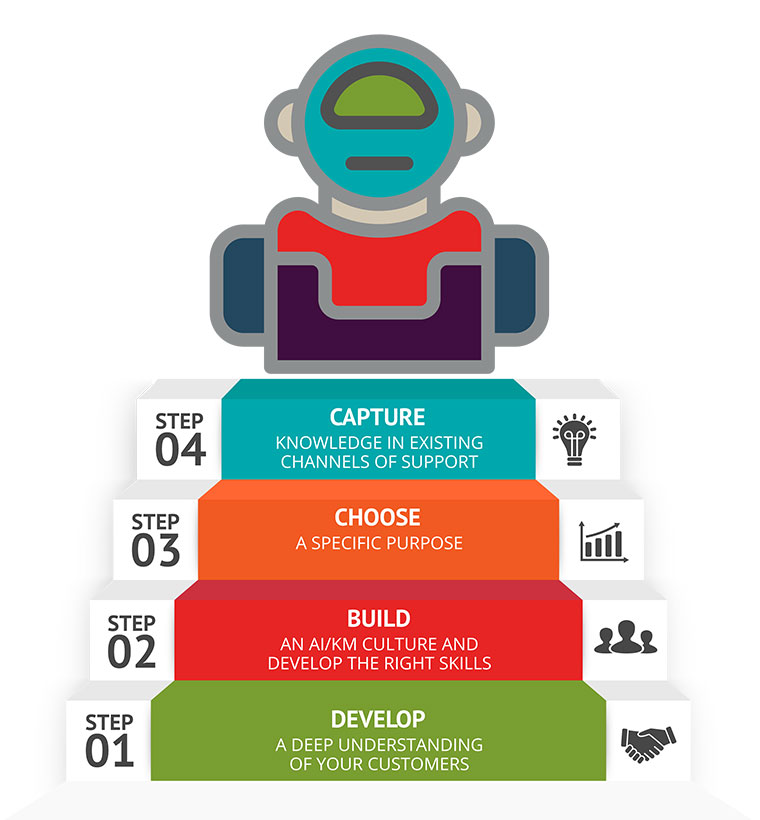
This image is property of www.thinkhdi.com.
Monetizing AI: Case Studies
It’s essential to explore case studies to learn how businesses around the globe are unraveling the potential of artificial intelligence (AI). There are countless examples of successful AI monetization, but also some stinging lessons to grasp from failed attempts.
Success Stories in AI Monetization
Let’s start with success stories. One high-profile instance is Microsoft’s Xiaoice, an emotionally intelligent chatbot that has been a huge hit across various Asian markets. The framework was built around language skills and emotional comprehension so that customers can interact with it like a human. This chatbot made over $16 million in revenue within a year of its launch.
Similarly, WeChat, the Chinese multi-purpose messaging, social media and mobile payment app, pioneered the use of chatbots within app ecosystems. According to estimates, WeChat’s chatbot strategy generates around $10 billion in revenue annually.
Lessons from Failed AI Monetization Attempts
While positive stories abound, several cases highlight the risks of jumping headfirst onto the AI bandwagon without sound strategy or understanding.
A notable failure was Facebook’s M bot. Launched with much fanfare, it promised to fulfill all users’ requests and learn from human operators. The ambitious project suffered from overpromising and underdelivering, eventually causing Facebook to shut down the service. From this tale, the key takeaway is obvious: keep the chatbot promises realistic and ensure that your technological prowess matches your ambition.
Decoding and developing an effective chatbot strategy can be a minefield, but it’s worthwhile to take a calculated plunge. The successful monetization of AI is happening now; chatbots are turning into significant revenue generators for businesses willing to invest in AI and comprehend its intricacies, leveraging them to their advantage.
Challenges in Transforming towards Monetizing AI
As I delve into the realm of AI and monetization, it is clear that chatbots are at the forefront of this revolution. However, this transformative journey is not without its challenges. Two major issues underpin the complexity of this transformation: The technical barriers associated with implementing AI monetization and the legal and ethical concerns surrounding it.
Technical Barriers for Implementing AI Monetization
On the technical front, implementing AI-driven chatbots with the capability of generating revenue is quite a challenging task. One needs advanced skills and resources to design, develop and maintain revenue-generating chatbots. Furthermore, these bots need to be able to seamlessly integrated into a variety of platforms, and be adaptable to evolving trends in commerce and customer behavior. This level of technological sophistication and adaptability comes with hefty requirements for data processing capabilities and high-speed connections, which can be huge obstacles, especially for smaller businesses.
Legal and Ethical Concerns
Legal and ethical concerns are equally crucial in this transformation towards monetizing AI. For starters, issues of data privacy and security must be thoroughly addressed. Customers need to trust that their data is safe with your chatbot. Also, it is important that these chatbots operate within legal and ethical parameters, negating the risk of misuse. Using chatbot technology successfully implies walking a tightrope of legality and ethics, respecting consumer rights while exploring new frontiers of AI monetization.
In essence, although the challenges abound, the benefits of mastering the art of monetizing AI using chatbots make this endeavor worthwhile. As we move forward, for businesses, the focus should be on taking these challenges head-on and innovating their way to a better future.
The Future of Monetizing AI in Chatbots
As we delve into the realm of conversational AI, it’s evident that chatbots are revolutionizing the online business landscape. Not only can these AI-powered bots streamline customer interactions, but they also hold potential for revenue generation. Yes, you heard it right, folks! We’re seeing a transformation towards the monetization of AI through chatbots. Let’s examine this exciting trend more closely.
Trends Influencing AI Monetization
The first key trend is the shift towards personalized customer experiences. As I’ve observed, businesses are leveraging AI chatbots to deliver targeted, personalized interactions, thus enhancing customer satisfaction and triggering higher spending.
Moreover, advancements in Natural Language Processing (NLP) have lead to more intelligent chatbots. These chatbots can understand and respond to complex queries in a more human-like manner. As a result, businesses are offering premium AI-powered services, opening new avenues for revenue.
Lastly, we’re also seeing a growing number of businesses adopting an AI-as-a-Service (AIaaS) model. Simply put, they are renting out their AI capabilities to other businesses, turning chatbots into money-making machines.
Predictions for the Future
Looking forward, I predict even more fascinating developments in the quest to monetize AI.
Imagine chatbots that can upsell and cross-sell products effectively during interactions, or AI assistants that can provide paid expert advice in highly specialized domains. The potential avenues are endless and the implications for businesses are tremendous.
The journey towards monetizing AI in chatbots is still at a nascent stage. However, given the current progress, we’re certain to witness more innovative transformations in the near future.
The emergence of AI involving chatbots is a testament to technological progress. As we move forward, I strongly encourage businesses to explore the endless possibilities of monetizing AI. After all, it’s the future- and it’s here to stay!
Conclusion
As we wrap up our deep dive into creating an effective chatbot strategy and the role it can play in monetizing AI, I find it necessary to revisit what we have learned and discuss the implications that this has for the world of online businesses.
Reviewing Key Learnings
The journey of developing a chatbot strategy begins with understanding your audience and their needs. It’s all about bridging the gap between human users and AI technologies. Remember, a good chatbot is one that provides value, so focus as much on the utility of the information it provides as the sophistication of the technology behind it.
You should also remember that monetizing your AI isn’t about charging users for every interaction with your chatbot. Instead, it involves leveraging the chatbot to drive revenue indirectly, like effectively addressing customer inquiries, improving conversion rates, fostering customer loyalty, and reducing operational costs.
Implications for Online Businesses
As the business landscape becomes increasingly digital, the importance of having an effective chatbot strategy cannot be overstated. Done correctly, chatbots offer a unique and reactive customer service outlet for your clientele. They can perform beyond regular working hours, and efficiently handle multiple inquiries at the same time.
Chatbots can also collect valuable data about each user interaction, offering opportunities for personalized marketing and improved customer retention strategies. In terms of cost, chatbots offer substantial savings over traditional customer service representatives, directly improving your bottom line.
In conclusion, a well-planned chatbot strategy can be a potent tool for online businesses – Not only for enhancing overall customer experience and service efficiency, but also for leveraging AI technology to increase revenue and profitability. Now it is up to you to apply these concepts, learn from them, and optimize your business strategies accordingly.

